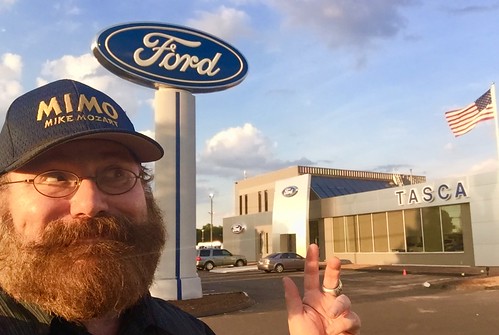Ford is going all in on hybrids. Here’s why.
Ford #Ford

Ford Motor Co. is betting that hybrid vehicles will be the bridge toward an all-electric-vehicle future for perhaps longer than most people expect. It’s a cautious strategy that has its admirers on Wall Street.
Ford F, -0.16% is not thinking about “extremes” between hybrids and EVs, company Chief Executive Jim Farley said recently. The automaker decided to keep investing in heavy-duty hybrid vehicles and has been surprised by their popularity, he said.
That’s a “subtle shift of strategy” for Ford, but one that makes sense in the current reality, said Garrett Nelson, an analyst with CFRA.
On the call with analysts following Ford’s quarterly results last month, Farley noted that Ford’s hybrid offerings are extremely popular. About 10% of F-150 pickup trucks and 56% of smaller Maverick pickup trucks being sold in the U.S. are hybrids, he said.
“We are adding hybrid options across our [internal-combustion-engine] lineup,” he said. “And we expect to quadruple our hybrid sales in the next five years, and we were already No. 2 in the market last year.”
The pure-battery EV market has become saturated, and Ford is indicating that it is willing to be flexible, CFRA’s Nelson said.
“Bottom line, aside from Tesla TSLA, -1.10% EVs, the vast majority of other EV models have sold very poorly,” Nelson said, adding that although many people are not interested in EVs, hybrids could be an easier sell.
Related: Electric vehicles vs. gas-powered cars: Which one is cheaper to buy and own?
“Consumers are becoming much more educated,” he said. “You can in a lot of cases go on pure battery power and not even use any fuel with these hybrids.”
Japanese carmakers such Toyota Motor Corp. 7203, +1.40% TM, -0.23% and Honda Motor Co. 7267, +5.87% HMC, -0.28% have taken that approach from the start, making much bigger bets on hybrids, and “in hindsight that appears to have paid off,” Nelson said.
Indeed, “hybrids are a much easier purchase in today’s environment,” said Karl Brauer, an analyst with iSeeCars.com.
“They cost less than electric vehicles, they don’t involve range anxiety, and Ford has managed to make them quite practical in how it pairs the technology with the F-150,” Brauer said.
Hybrids are more expensive to buy than internal-combustion-engine vehicles, but they are cheaper than electric vehicles because their batteries are significantly smaller — even those in plug-in hybrids, which are capable of driving several dozen miles solely on an electric charge. About a third of the cost of an EV is the cost of the battery.
Hybrids have one more critical advantage over EVs, Brauer said — they can be produced and sold for a profit.
Ford’s strategy contrasts with a more aggressive EV push by General Motors Co. GM, -0.79%, Nelson said.
GM late Wednesday unveiled its Cadillac Escalade IQ, a luxury EV that starts at around $130,000 and has 450 miles of range. GM expects to begin making the vehicle in the summer of 2024, with sales beginning in late 2024.
GM’s future lineup includes a number new EV models as well as electric versions of popular vehicles that were previously available only as gas-powered models. That includes an electric Chevy Equinox for next year and a return of the Chevy Bolt, among the cheapest EVs available in the U.S.
See also: GM is bringing back the Bolt. What do we know so far about the updated EV?
GM will cease production of the Bolt later this year but has promised to bring it back using the company’s new shared EV platform. Observers expect the new Bolt to be available around 2025.
GM’s EV strategy is generally viewed as more risky.
Tesla started a price war earlier this year, cutting prices of its EVs several times. Ford also cut prices, most notably on the F-150 Lightning, the electric version of a pickup truck that’s been the best-selling vehicle in the U.S. since the 1980s.
Hybrids also do away with so-called charge anxiety, because their gas-powered engines kick in when needed.
Related: EVs zoomed ahead with a 8.2% slice of auto financing pie in second quarter
According to a Consumer Reports survey in June, about 6 in 10 respondents said that concerns about charging were holding them back from purchasing an EV, and about 5 in 10 cited range as a reason they wouldn’t buy one just yet.
Tesla has made its fast-charging ports the de facto standard in the U.S., and several automakers, including Ford and GM, have inked deals to allow their EV owners to power up at Tesla’s Supercharger network, which has charging stations located near major highways.
An often-cited 2022 study about the reliability of public, open-to-all fast-charging stations in nine counties in the San Francisco Bay Area found a range of issues with the stations, from charging and payment failures to annoyances such as spaces being occupied by gas-powered vehicles or EVs that are not actively charging.